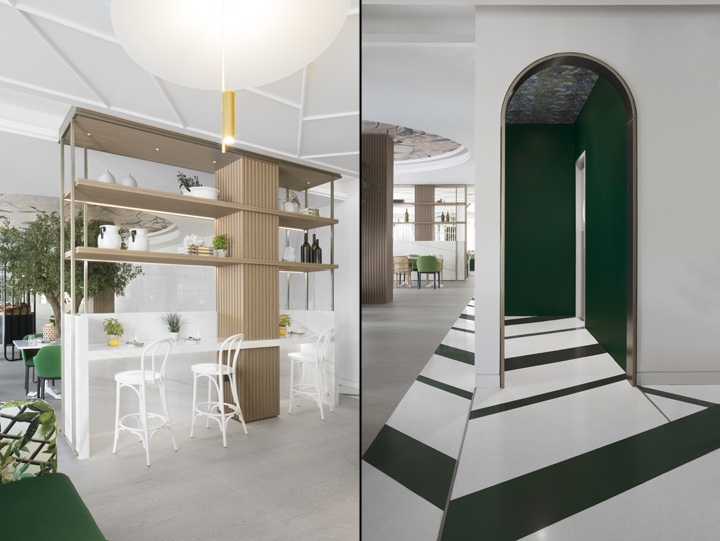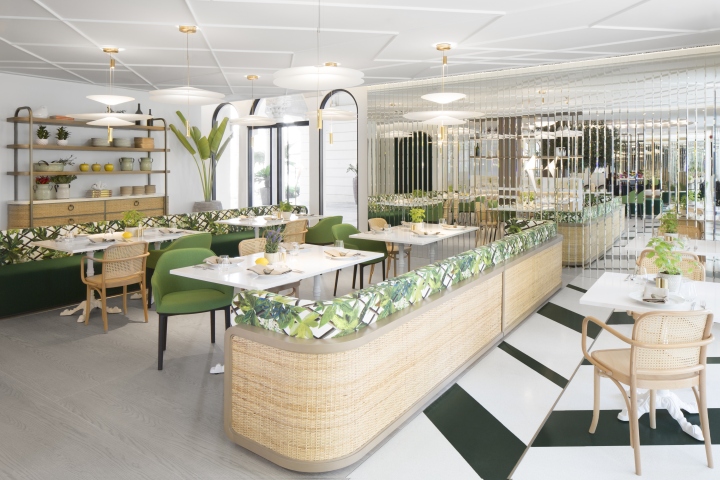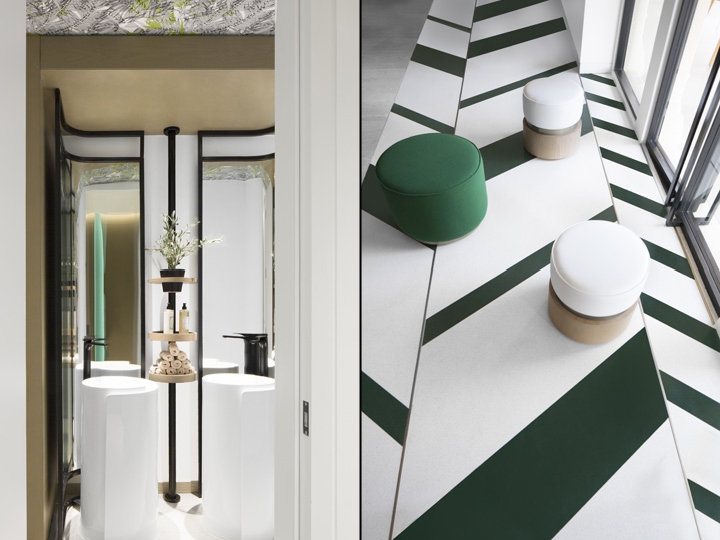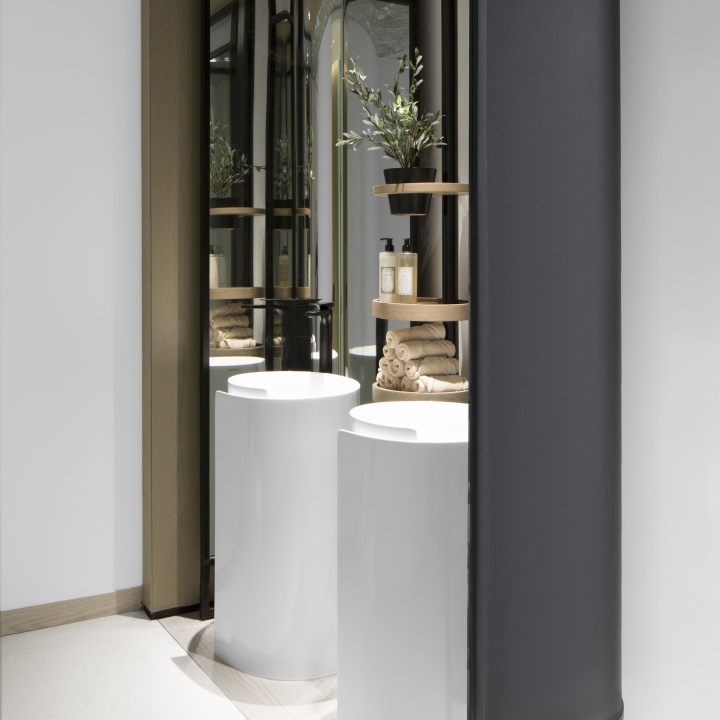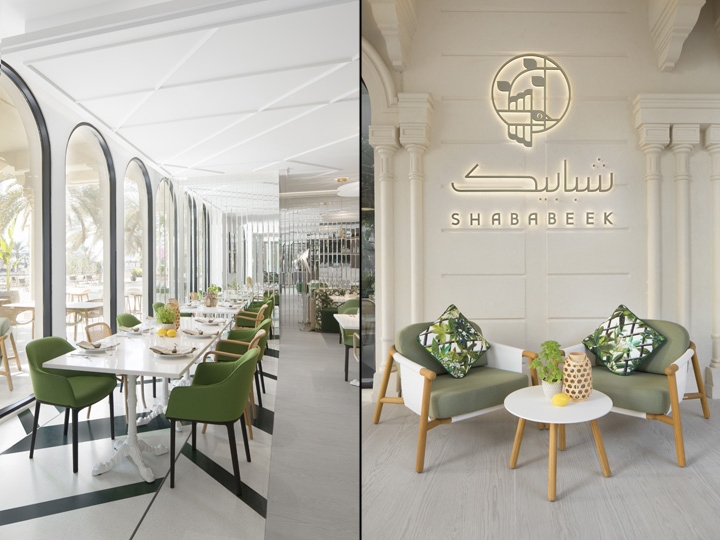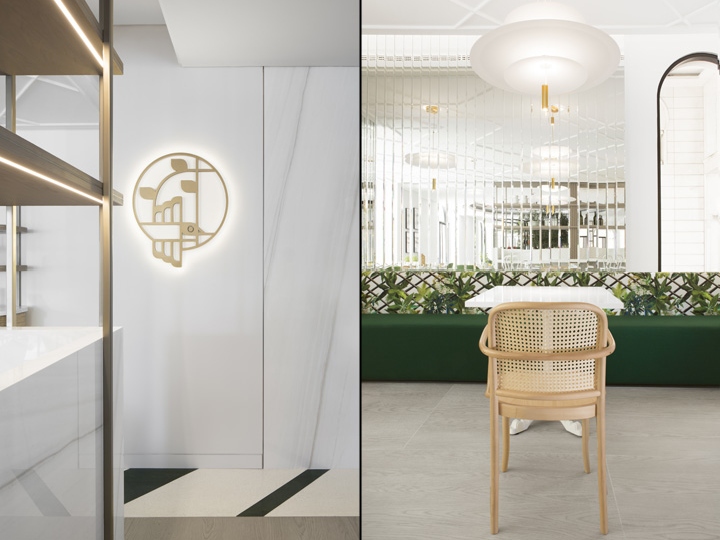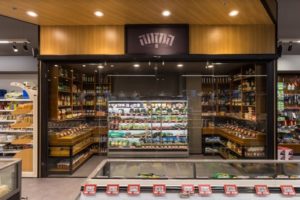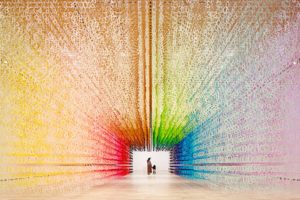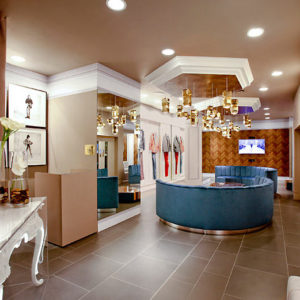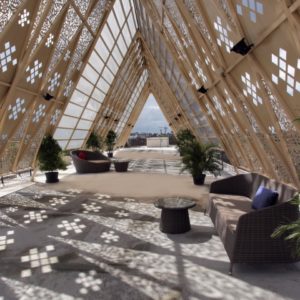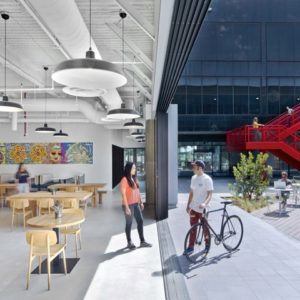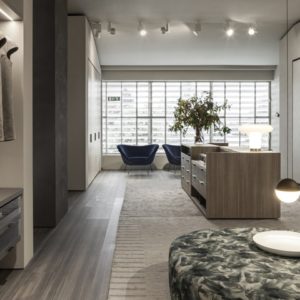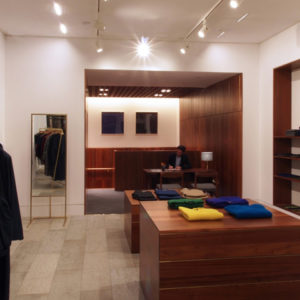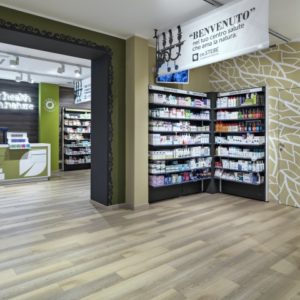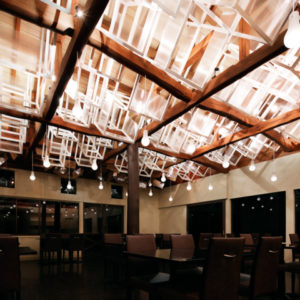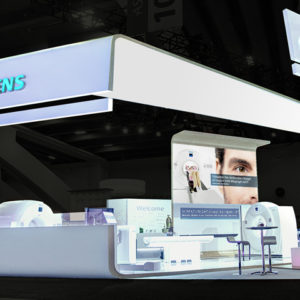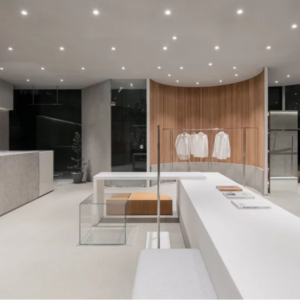
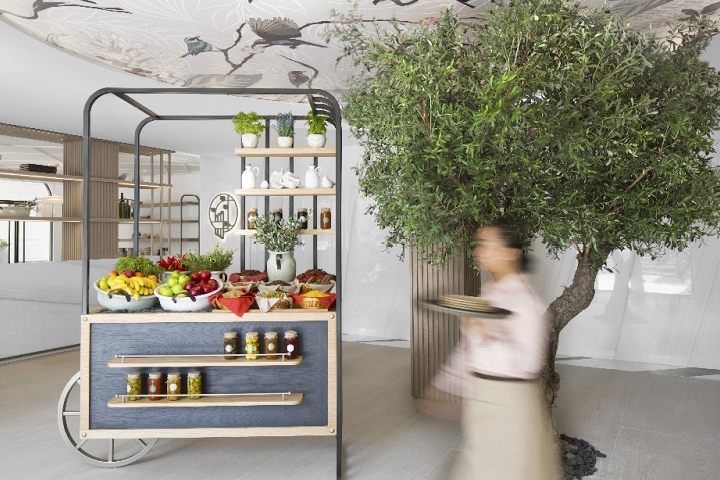

The UAE’s Boutique Interior Design Firm of the Year 2017, Pallavi Dean Interiors’ first restaurant design concept, Shababeek, is now open. In keeping with the interior design agency’s mission statement to create unforgettable experiences through design, it has taken a meticulous approach to research, working in close collaboration with Lebanese star chef Maroun Chedid and drawing upon local UAE design talent. Pallavi Dean Interiors has developed a design story around the concept of ‘fusion’ to reflect both the collision of architectural and design styles which has existed in Lebanon for centuries and the restaurant’s eclectic array of influences: from Mediterranean cuisine to Khaleeji wildlife, French fashion to Romanesque and Islamic architecture.
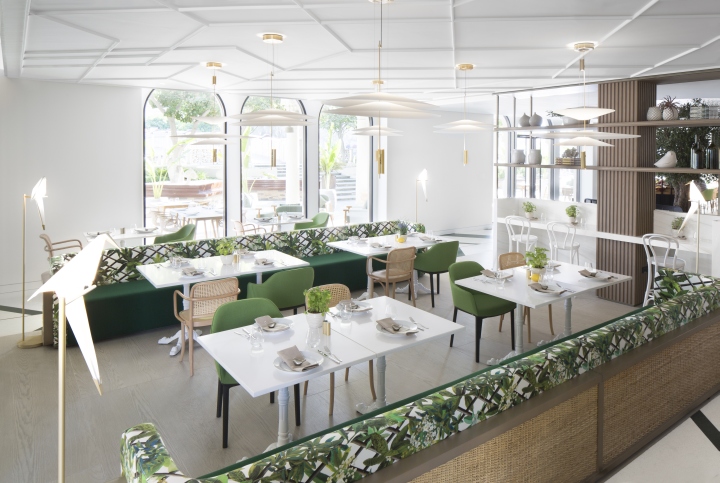
The exceptional detail poured into the design narrative is combined with a vibrant colour and materials palette of rich greens, brushed brass and neutral tones. The result is a restaurant with an elegant, sophisticated and, above all, contemporary design language: “Of all the elements I love about this restaurant, it’s the quality of the work produced by local artists and craftsmen that gives me the most joy. There’s always a danger when you put European designer furniture – Vitra, Mooi and so on – next to locally made pieces that the void in quality sticks out like a sore thumb. Not in Shababeek.
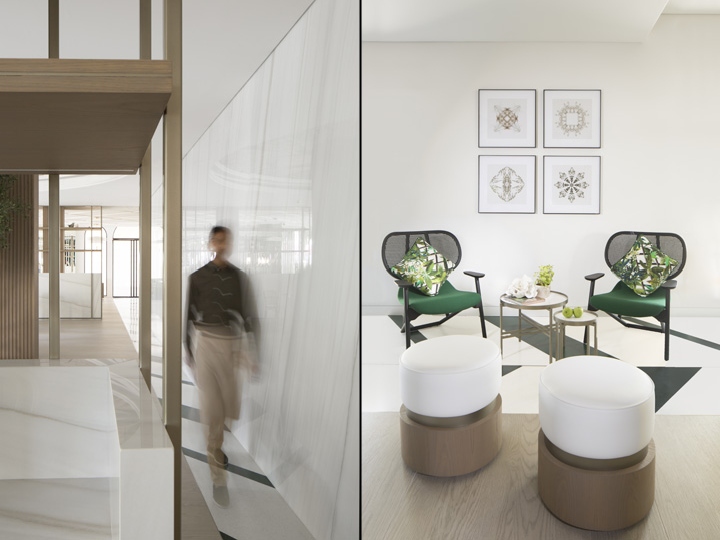
“Much of the joinery is by a third-generation carpenter from Rajasthan who’s based in Sharjah; the trolley was partly designed in our studio with the help of an Emirati intern called Alya, and custom made right here in Sharjah. I could go on. The owner of the restaurant was incredibly supportive in commissioning so much of the work by UAE suppliers, and they haven’t let her down. I feel so proud of brand Made-in-the-UAE!” Pallavi Dean, founder and design director of Pallavi Dean Interiors. The client, HH Sheikha Bodour bint Sultan Al Qasimi, a senior member of Sharjah’s ruling family, approached Pallavi Dean Interiors with an incredible brief: to create a destination restaurant for the Northern Emirate, a world-class outlet that would raise the bar for the restaurant scene across the entire emirate.
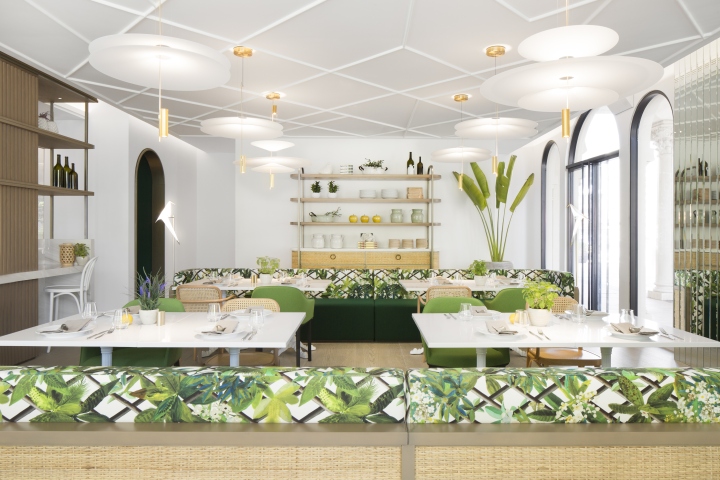
Shababeek is a refurbishment of an established Lebanese restaurant in Sharjah. While the restaurant had built up a loyal following, the menu and design had become dated and a complete overhaul was called for. Beirut-based celebrity chef Maroun Chedid developed a menu that blends the best of Lebanese and Emirati cuisine with an innovative, modern twist. Dubai-based Pallavi Dean Interiors created a design to complement and showcase this culinary approach: inspired by traditional, regional design cues yet with contemporary ‘wow’ factor.
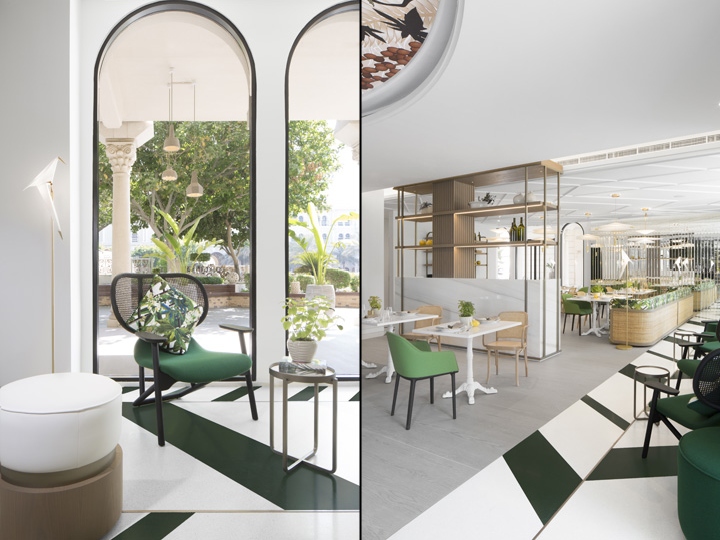
The concept for the design and the food were developed in tandem from the outset. From an early stage Pallavi Dean Interiors worked closely with Chef Maroun, Sheikha Bodour’s hospitality consultant Zohra Qureish, and graphic designers Two Thirds to create a design identity that seamlessly integrates the physical design with the menus, uniforms, tableware and branding. The olive tree that dominates the restaurant lobby is inspired by the olives and olive oil that are the bedrock of Lebanese food, Chef Maroun’s being no exception. The birds that flock to the tree are represented in the custom-designed wallpaper on the ceiling by Pallavi Dean, with images of birds, plants and trees found in both the Levant and the Gulf.
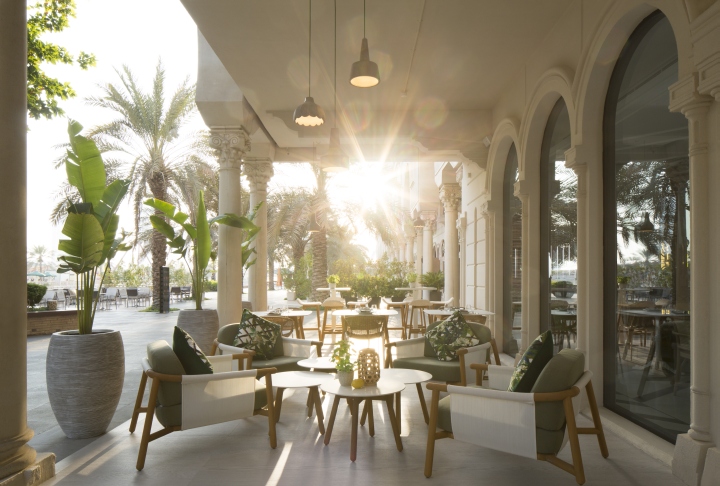
This series of digital collages is created by Dubai-based art collective, The Attic. Their fascination with the UAE’s natural environment has been an ongoing focus of their work. In this mural the artists have created a series of ornate patterns from plants native to the UAE. The flamingo lights (by Vibia) allude to abstracted forms of birds in flight, while and perch floor lights (by Moooi) that flanks the booths further emphasis the aviary theme. The main dining area is a meeting of European designer furniture (Vitra and Thonet) and custom benches and tables made by local carpenters and upholsterers in a Sharjah workshop. The client, HH Sheikha Bodour bint Sultan Al Qasimi, was keen to support and showcase the talent of local artisans.
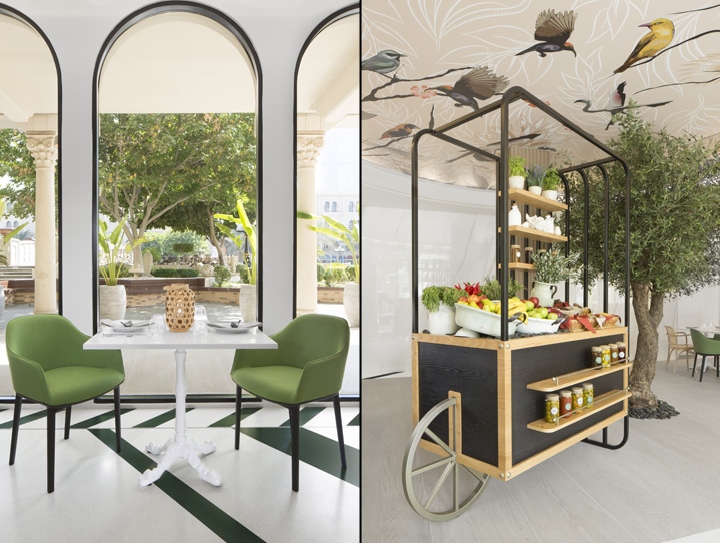
Dubai-based curators Capsule Arts Studio created a bespoke artwork for the restaurant. This monochrome photo-collage combines plants commonly found in the region with an overlaid gold leaf pattern. The street-vending trolley that stands next to the olive tree is hand-made in Sharjah. Inspired by the traditional Beirut traders who sell freshly baked Kaa’k (ring-shaped Arabic bread), it is used to promote and sell Chef Maroun’s range of branded home cooking ingredients and accessories. The design acknowledges the Roman and Islamic architectural influences that have collided in Lebanon for 2,000 years. Window arches are classically Roman, while the delicate plaster moulding patterns use abstracted Islamic geometry.
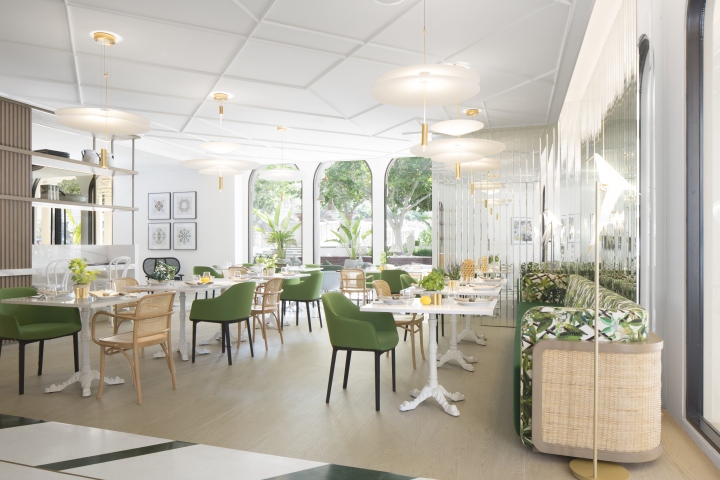
French ceramicists Faiencerie Georges were commissioned to create a unique series of 20 plates featuring hand-painted window illustrations. These illustrations depict typical window designs found across the Arab world, especially the UAE and Levant. Natural materials that form the base palette – such as rattan, wood and local aggregate in the terrazzo flooring – reference Chef Maroun’s artisanal approach to the menu. Parisian style is injected through the ornately bevelled rows of mirrors and patterned terrazzo flooring; both are a (very subtle) nod to the Parisian style of the 1920s Art Deco era. The bathrooms feature patterned wallpaper by Designers Guild, matching the upholstery in the main dining room. A curved mirror which wraps around the floor standing wash hand basin.
Design: Pallavi Dean Interiors
Photography: PVA photography
